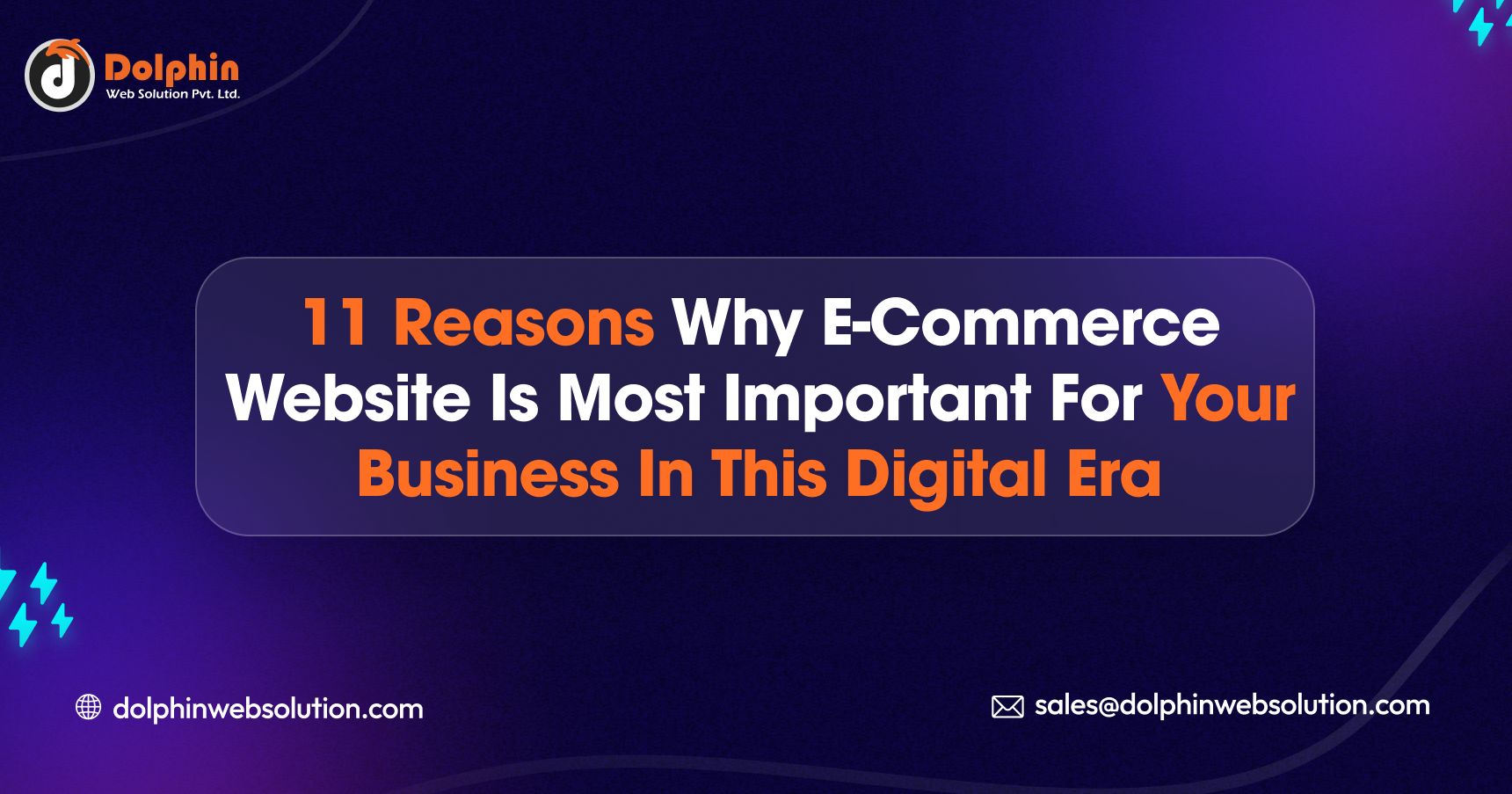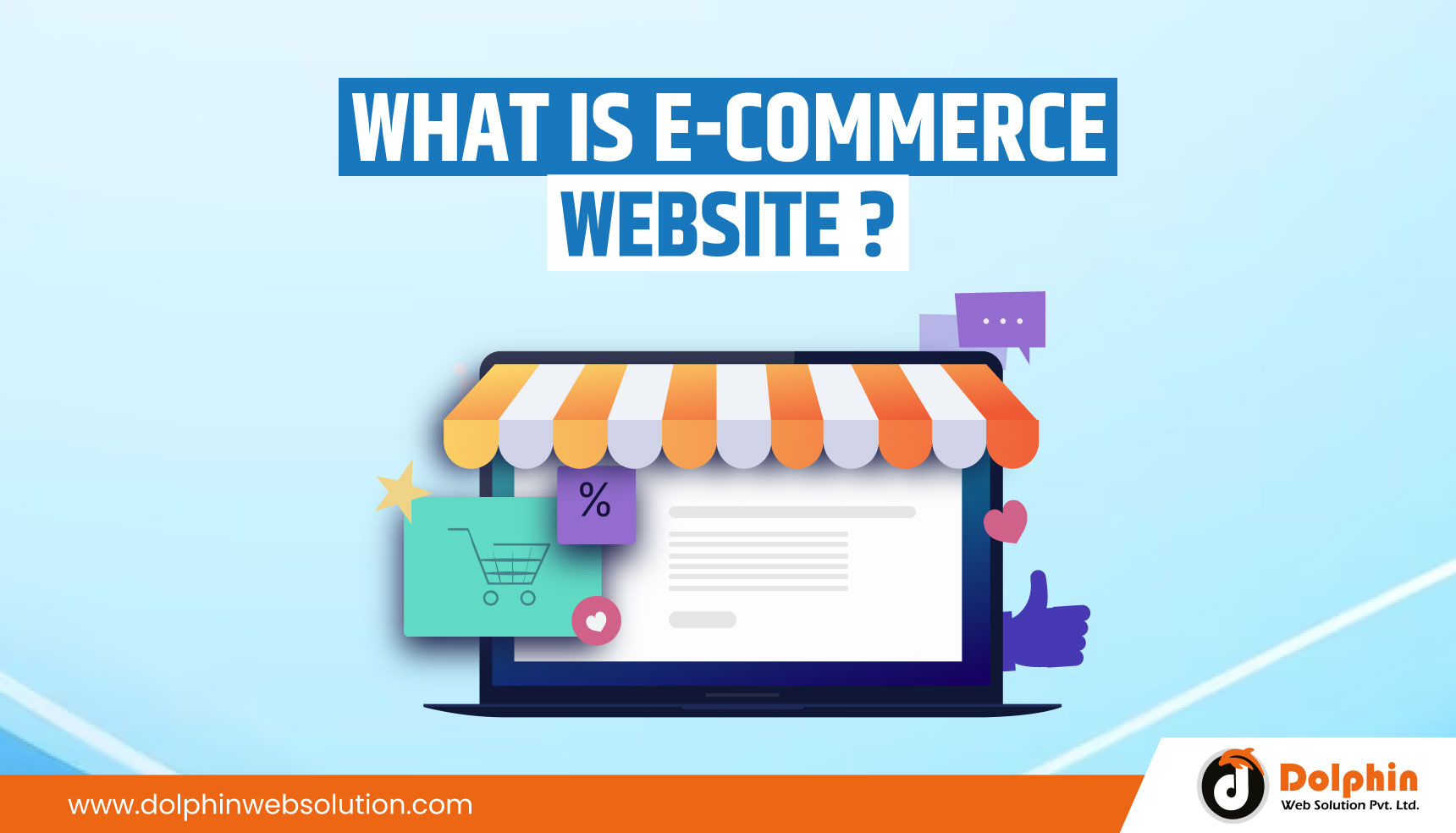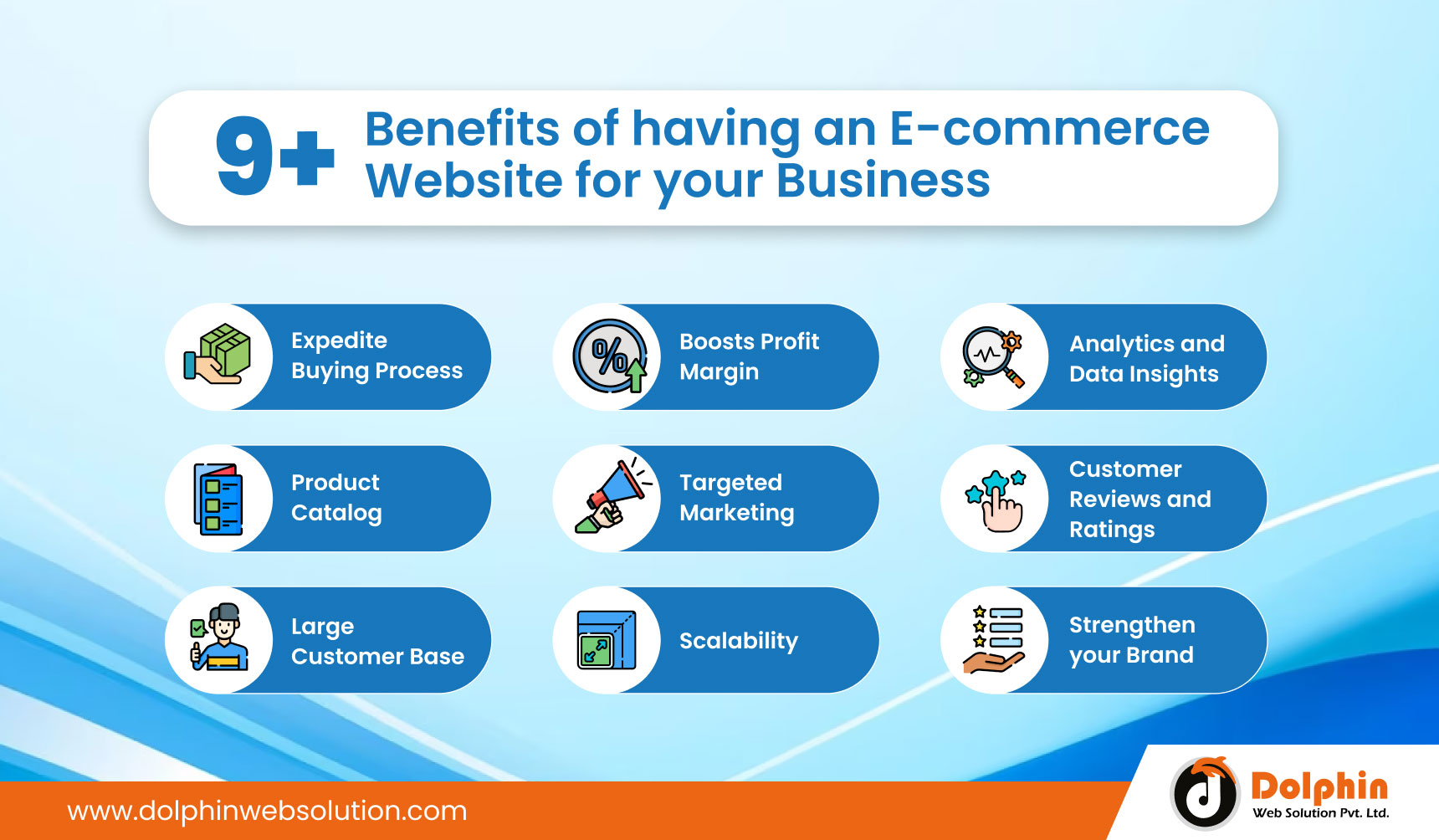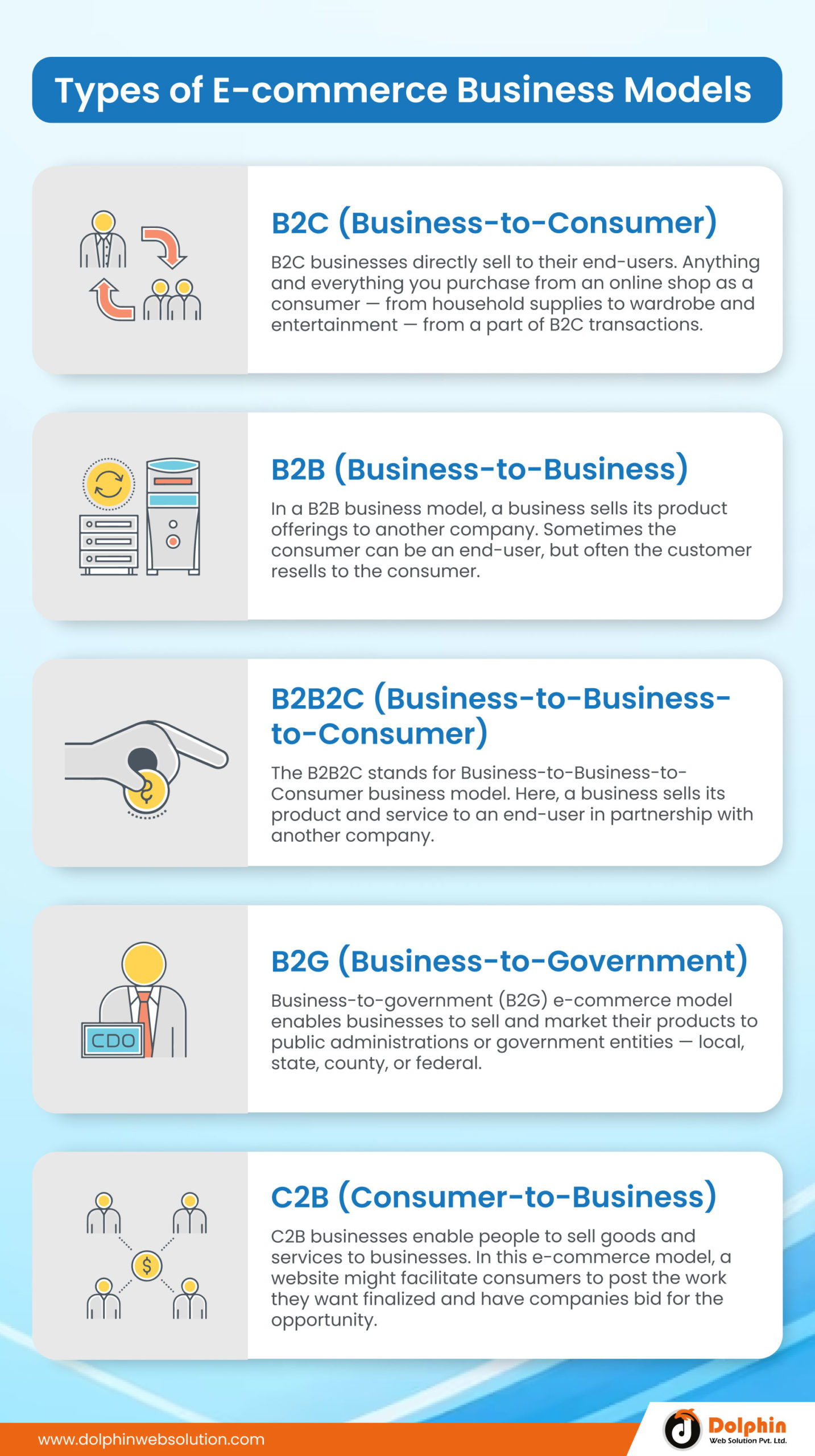11 Reasons Why E-commerce Website is Most Important for Your Business in this Digital Era

Table of Contents
Summary :
Online shopping is redefining the business landscape by delivering an unparalleled experience to users. E-commerce used to be a notion that started with the delivery of books, and today users can find almost anything on E-commerce platforms ranging from clothes to electronics to jewellery.
In today’s ever-increasing convenience-focused society and competitive marketplace, consumers no longer want to travel to the high street to purchase products. Instead, they want to shop for things from the comfort of their homes, which is essential to have your e-commerce website. Since its advent, e-commerce has been recasting the global sales industry. Consumers now prefer shopping online to visiting a physical store for several reasons: offers, discounts, convenience, and loyalty programs.
As per Statistica, global e-commerce sales are expected to reach a massive $6.51 trillion in 2023, and by 2026, the e-commerce market is anticipated to total more than $8.1 trillion. These statistics already speak volumes about why an e-commerce website is essential in the digital world. You can also hire a professional ecommerce development company to get a competitive edge.
What is an Ecommerce Website?

An e-commerce website serves as an online portal that enables online transactions of goods and services by transfer of information, products and funds over the Internet. Initially, e-commerce was done partly through phone calls and emails.
With a single website, everything a transaction requires can be implemented online. An e-commerce website serves as the digital storefront of businesses on the Internet. It fosters the transaction between a consumer and seller. It acts as a virtual space where you showcase products, and your customers make selections online. Your website will function as your e-commerce business channel’s sales staff, product shelves, and cash register.
How is Ecommerce Used in Business?
An e-commerce website enables individuals to buy and sell physical goods, services, and other digital products online rather than at a physical location. An e-commerce website allows a business to process orders, manage logistics and shipping, provide customer service, and accept payments.
Moreover, tracking e-commerce metrics such as bounce rate, website traffic, cart abandonment rate, time spent, etc, can help businesses to measure success. It will also show what works for your buyers and where you need improvements. Most e-commerce platforms come with certain built-in data tracking, but if you want robust metrics, you can opt for analytics platforms such as Google Analytics.
Why is an E-commerce Website Essential in this Digital Era?
E-commerce websites are now ubiquitous in the present digital landscape, providing a wide range of opportunities and benefits to consumers and businesses.
Websites now function as the foundation of e-commerce business operations, serving as the primary point of contact between customers and businesses. The spectrum and goals of e-commerce websites are vast, delivering companies with the potential to reduce costs, reach a global audience, high scalability, increase sales, and improve the customer experience.
Benefits of Having an E-commerce Website for your Business
The digital commerce world is greatly dependent on e-commerce websites. If you want to gain a competitive edge, hiring e-commerce developers offering a full range of web development services for e-commerce businesses would be best. E-commerce websites can benefit your business when supplemented with the best e-commerce platform. Some of the primary benefits of having an e-commerce website for your business include.

Speed and Flexibility
With a physical store, businesses must arrange for capital investment, space, commercial leasing, and other resources. In contrast, websites allow you to change the platform, products, look, and features instantly. An e-commerce website outperforms physical outlets on versatility, speed, and functionality parameters. You can operate your ecommerce store without renting commercial spaces and requiring expensive resources.
Low Costs
A full-fledged e-commerce store can be launched at a fraction of the cost of setting up a physical store. You don’t need to pay a lease or rent, hire employees, or develop your outlet. Moreover, e-commerce websites automate most of your sales-specific tasks that reduce your operational expenses further. It also allows you to market and advertise online without going overboard with your advertising budget.
Expedite Buying Process
In a brick-and-mortar store, a consumer visits the store and spends time and money. With an e-commerce website, a consumer can search for a product online, check the reviews, select the right size, and place an order from the comfort of their home, saving time and money.
Moreover, e-commerce websites are accessible 24*7, enabling customers to shop anytime and get their orders delivered to their doorstep.
Product Catalog
Consumers always prefer to get detailed information about items they want to buy. This is where e-commerce websites score because it allows consumers to view a full-fledged product catalogue which contains all the information and its review. Sometimes it also includes a comparison with other items in the market.
The product catalogue delivers every minute of information about the item, such as its colour, characteristics, size, utility, and specification. It helps consumers select any product or service based on their preferences.
Large Customer Base
One of the most significant advantages of an e-commerce store is that it eliminates geographical restrictions. It enables your company to engage with customers worldwide and sell your products and services effectively. It allows you to tap unexplored markets via online touchpoints, social media, and consumer forums.
It also offers real-time updates to customers about product availability and delivery.
Analytics and Data Insights
E-commerce websites enable you to collect customer data, analyze it, and use it in your decision-making. By capturing customer feedback, experiences, and preferences, you can make vital course corrections to enhance their experiences on your e-commerce store and deliver products and services that cater effectively to their dynamic expectations.
E-commerce tools provide actionable customer information insights to continuously improve customer experience.
Boosts Profit Margin
In contrast to conventional physical stores, the cost of setting up and managing an e-commerce business could be higher. It helps you save money on marketing, real estate, labour, administration, and other overheads.
The e-commerce shops also provide businesses with dashboards having additional features like reports and invoices to help them manage their inventory and finances efficiently.
Targeted Marketing
E-commerce allows you to leverage targeted marketing strategies to reach a potential consumer base interested in buying your products or services.
Businesses can decide their marketing budget and select who can view their advertisement based on demographic details, preferences, keywords, and interests.
Scalability
Physical stores face the most significant challenge — that is scalability. Once your brand flourishes and its customer base grows, or you want to go global, you need more capital investment, staff, permissions, and resources.
In contrast, scaling your e-commerce store is easy and could be achieved easily with much less cost and hassle.
All you need is some tweaks in your e-commerce site, supplementary storage space, and additional inventory, which will cost you way less than scaling your brick-and-mortar store.
Customer Reviews and Ratings
The reviews and ratings on e-commerce portals enable potential consumers to get crucial information about the product or service beforehand to make an informed decision. It also motivates sellers to improve their products and services to boost customer satisfaction and sales.
Such customer reviews and ratings are generally not available in physical stores.
Strengthen Your Brand
Businesses with an e-commerce website to sell products and services can achieve complete control over their operations. They will be able to utilize as many keywords as they want, logo, and customize the look and feel of the website to create a lasting impression on their consumers. This allows businesses to strengthen their brand among both potential and existing consumers.
Types of E-commerce Business Models
If you want to defy expectations and innovate — if you plan to separate your business from all other online companies — you must know which business model works best for your business and how you can use that to tremendous success.

B2C (Business-to-Consumer)
B2C businesses directly sell to their end-users. Anything and everything you purchase from an online shop as a consumer — from household supplies to wardrobe and entertainment — from a part of B2C transactions.
B2C transactions include both products and services. B2C innovators have utilized technology like remarketing, native advertising, and mobile apps to market their offerings directly to consumers and make their operations more straightforward.
Examples include online retailers such as Amazon, eBay, and Walmart.
B2B (Business-to-Business)
In a B2B business model, a business sells its product offerings to another company. Sometimes the consumer can be an end-user, but often the customer resells to the consumer. B2B e-commerce transactions typically have a longer sales cycle but more recurring and higher-order value purchases.
Recent B2B businesses have replaced order sheets and catalogues with e-commerce storefronts and enhanced consumer targeting in niche markets.
Examples:
- Alibaba
- IndiaMART
- Walmart
B2B2C (Business-to-Business-to-Consumer)
The B2B2C stands for Business-to-Business-to-Consumer business model. Here, a business sells its product and service to an end-user in partnership with another company.
Unlike white labelling a product — where a business rebrands a good to present as its own — the end-users understand that they are purchasing an item or using any service from the original company.
Examples:
- Expedia
- Uber Eats
- Groupon
B2G (Business-to-Government)
Business-to-government (B2G) e-commerce model enables businesses to sell and market their products to public administrations or government entities — local, state, county, or federal.
This model depends on the booming bidding of government contracts. In such models, a government agency commonly requests proposals (RFP), and B2G businesses will need to bid on these projects.
Examples:
- Maintenance services
- Businesses selling equipment to government agencies,
- Contractors delivering services to the government.
C2B (Consumer-to-Business)
C2B businesses enable people to sell goods and services to businesses. In this e-commerce model, a website might facilitate consumers to post the work they want finalized and have companies bid for the opportunity.
This method allows consumers to denote prices or have companies compete directly to meet their needs.
Examples:
- Google AdSense
- Commission junction
- Etsy
Key Takeaways
An e-commerce website is now a crucial requirement for any business that wants to gain a competitive edge in the market. E-commerce websites provide an incredible opportunity for businesses of all sizes to acquire valuable insights, earn loyal customers, and create a strong presence for their brand online. You can hire a professional website development company to ensure your ecommerce business’s growth further.
We can help you design, develop, and maintain a customized, SEO-friendly e-commerce website that will hit your ROIs out of the park with organic traffic and customer retention. Connect with our professionals for a free consultation session for your website.


